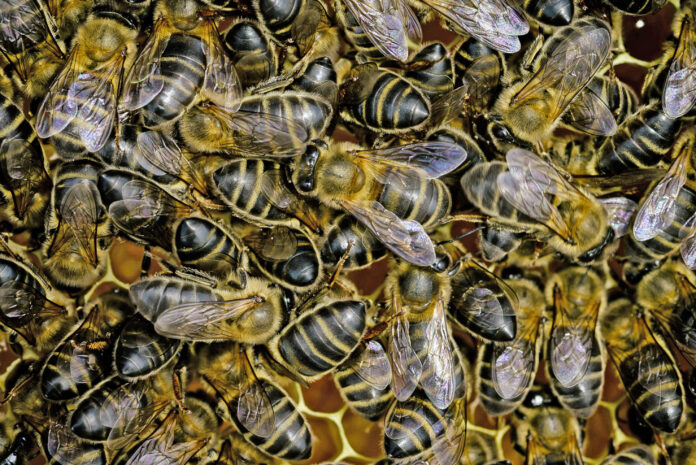First part of 2 series
Bees are speaking to us—not with sound, but through their presence, their absence and their steady disappearance. Alongside butterflies, bats, beetles, some mammals and birds, these tireless workers sustain the crops and wild plants that feed us, protect biodiversity and keep our agri-food systems resilient. When they thrive, ecosystems flourish. When they falter, so could we.
Without pollinators, foods like apples, almonds, cocoa and coffee become harder to grow and more expensive to access. Their decline doesn’t just threaten nature—it undermines our agrifood systems, from farm productivity to food security and nutrition.
Land use changes, habitat loss, unsustainable farming practices, pests and diseases and invasive species are causing alarming declines to their populations.
This World Bee Day, the message is simple but urgent: safeguard pollinators, and we safeguard our agrifood systems.
Pollinators are essential to global food security and nutrition, enabling the reproduction of 87 of the world’s 115 leading food crops and supporting nearly 90 percent of wild flowering plants.
Their role spans from sustaining nutritious diets to securing rural incomes, with 1.4 billion people—especially smallholder farmers in Africa, Asia and Latin America—relying on pollination for their livelihoods.
Declines in pollinator populations threaten food availability, compromise nutrition and weaken local economies—heightening the risk of food insecurity and diet-related diseases in vulnerable regions.
Bees and other pollinators are vital allies in building climate-resilient agrifood systems, supporting diverse farms that are more adaptable to shocks and capable of producing higher-quality crops with fewer external inputs.
Food and Agriculture Organization (FAO) is leading global efforts to protect and harness pollinators through the International Initiative for the Conservation and Sustainable Use of Pollinators and a range of projects at every level. Its Global Action on Pollination Services platform serves as a key resource for beekeepers, educators, and policymakers, offering practical tools and up-to-date science.
Across Africa, Latin America, Europe and the Near East, countries are advancing sustainable beekeeping and pollinator protection as practical tools for biodiversity, livelihoods, and climate resilience. (To be continued)








